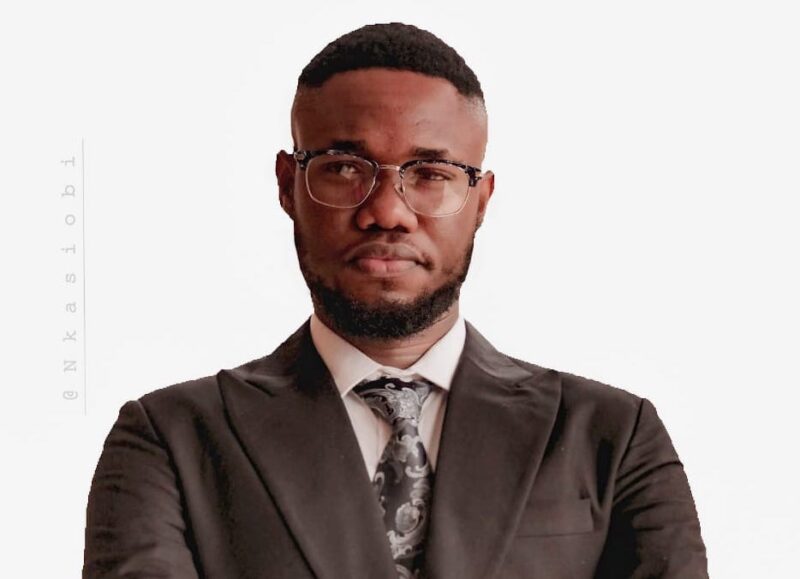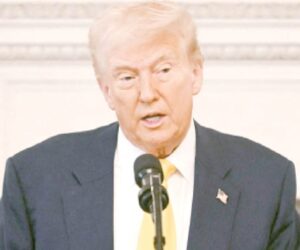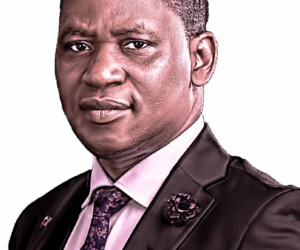
In late July, Russia’s official news agency, TASS, reported that Benin and Togo plan to sign defence cooperation agreements with Russia. These agreements would allow for joint operations to combat the growing security threats both West African countries are facing.
Benin and Togo, like other countries in the Sahel, have been struggling with a rise in Islamist terrorism from groups affiliated with Al-Qaeda and the Islamic State, such as Jama’at Nusrat Al-Islam wal Muslimin (JNIM) and the Islamic State Sahel Province (ISSP). For example, the number of military personnel killed in Benin during the first four months of 2025 (at least 88) has already exceeded the total for 2024.
This instability, which began with local ambitions of groups like Boko Haram and the Azawad Liberation Forces, was bound to spread due to porous borders and geographical proximity. Since 2019, warnings from sources like the US Africa Command have pointed to the risk of Islamist groups moving into coastal West Africa. Consequently, Benin and Togo experienced their first attacks between 2019 and 2022. Since then, their response has been weak, despite deploying hundreds of soldiers to the northern regions, which remain largely ungoverned spaces.
The crisis was handled so poorly that they had to look for external support from within the region, especially from outside the existing framework. Although the cooperation with Russia didn’t explicitly mention the deployment of the Wagner private military company (rebranded as the Africa Corps and now part of the Russian defence ministry), it’s reasonable to assume the Corps will lead this military cooperation. This is based on recent deployments of the group to Mali and Niger, as well as the presence of Russian military instructors in Burkina Faso.
Russian forces are essentially filling a security vacuum left by Western nations. Previous counterterrorism operations — like Serval, Barkhane, Takuba, and the G-5 Sahel Group — failed, leading to a rejection of the Western presence, which was a legacy of the Françafrique era.
The Economic Community of West African States (ECOWAS) has been slow to establish its proposed 5,000-strong regional counter-terrorism force. Despite discussions starting in 2023, there’s been little tangible progress.
In August, a funding model was finally approved, securing $2.61 billion from member states and international partners. While this is a welcome development, it comes dangerously late. The security situation in the Sahel has deteriorated sharply, with jihadist groups and bandits using the region’s forests and parks as bases for their operations.
The need for a strong, unified response has been clear for over a decade. ECOWAS’s slow progress highlights a worrying lack of political will and a coherent strategy to tackle the escalating crisis.
The intensification of great power politics in West Africa, with foreign powers like France, Russia, and the US all prioritising their own interests over altruism, should be a cause for concern for Abuja and Nigeria’s security services.
Specifically, the deployment of Russian mercenaries by Benin and Togo so close to Nigeria’s border is particularly troubling. For decades, Nigeria has maintained a clear policy of opposing foreign military deployments not just on its own soil, but throughout West Africa. This stance dates back to a failed defence pact with Britain in 1962, which birthed a deep-seated suspicion of foreign military presence and external geopolitical influence in the region. Nigerian intellectuals have also been at the forefront of campaigns against continued French neocolonial influence in francophone West Africa.
While Nigeria’s recent economic and security challenges may have weakened its geopolitical standing, there’s a significant difference between being a helpless observer of Russian activity in Mali or watching US drone surveillance in Niger (before their expulsion) and having Russian private military forces operating along Nigeria’s extensive borders.
Deploying the Africa Corps will worsen Nigeria’s security problems. Although the Nigerian military has a poor record — with ‘accidental’ bombings of civilians during counter-terrorism operations — it still maintains some community support near the western border with Benin.
Benin’s use of the Africa Corps will complicate the fight against insecurity and hand a propaganda victory to insurgents. This is already happening in Mali, where reports of Russian forces’ excessive use of force against civilians have caused discontent within the Malian military. Civilians are blaming local security forces for human rights abuses, which groups like JNIM are exploiting.
Russia’s counter-terrorism track record in Africa is questionable at best. The security crisis in northern Benin and Togo is not conventional warfare. Terrorists fleeing the Atacoura and Alibori departments are likely to cross into western Nigeria. Their frustration with civilians will likely lead to an increase in human rights abuses, making the job of Nigeria’s security forces even more difficult.
It’s fair to note that Western counter-terrorism operations haven’t been much better. Airstrikes from Operation Barkhane and US operations in Niger also led to public discontent. However, this isn’t to justify Russia’s poor human rights record. It simply explains why governments concerned with domestic legitimacy are willing to overlook these issues.
This situation looks bad for Nigeria and the Tinubu Administration. In 2022, then-president Muhammadu Buhari warned about increasing external geopolitical influence in West Africa, stating that it undermines regional cooperation. Buhari was likely referring to both Western and Russian powers.
The deployment of the Africa Corps would further destabilise the region and isolate Nigeria. This is because it would complete a Russian “arc of influence” around Nigeria, extending from the Central African Republic, through Mali, Burkina Faso, and Niger. As Foreign Minister Yusuf Tuggar has warned, this could lead to future instability in the region and across the continent. There’s a risk of jihadist violence spilling over into northern Nigeria, worsening the threat from Boko Haram and its North Central affiliates due to the porous borders.
The risk of border incursions causing poor relations between Nigeria and Russia is not far-fetched. In 2021, intelligence reports suggested that Wagner forces in the Central African Republic were considering assassinating Chadian leader Mahmat Kaka Déby. This may have prompted the Chadian air force to carry out pre-emptive strikes on Wagner positions in the Central African Republic in December 2022, although suspected incursions followed. Nigeria is not immune to such risks.
From a geopolitical perspective, the presence of the Africa Corps on Nigeria’s borders would weaken Nigeria’s leadership within the Economic Community of West African States (ECOWAS). This is due to the potential for divided loyalties in great-power rivalries and proxy wars. Economically, Russian exploitation of resources in neighbouring countries could disrupt trade, increase fuel smuggling, and threaten Nigeria’s oil-dependent economy, ultimately undermining its sovereignty and stability.
In an ideal world, pax-Nigeriana would have meant Nigeria encouraging both countries to abandon the idea. However, realistically, this is no longer the 1990s or early 2000s.
Benin’s closer relationship with Moscow is due to many factors, including Nigeria’s poor leadership of the Economic Community of West African States (ECOWAS). This is compounded by Nigeria’s harmful economic policies, such as the ill-advised 2019 border closure, which had damaging beggar-thy-neighbour consequences for the region’s economy. Other factors include Nigeria’s inability to control its own security crisis and the failed attempt to use military force to reinstate civilian government in Niger in 2023.
The situation came to a head in 2023 when Benin asked Rwanda to deploy troops to fight Islamist groups. This mirrored Rwanda’s operations against the Islamic State in Mozambique’s mineral-rich Cabo Delgado region.
Nigeria might be in a diplomatically weak position, but this doesn’t mean it should do nothing while it’s being surrounded. The government in Abuja must take three key steps to secure its interests:
- Engage with Togo and Benin; First, Nigeria must tactfully engage with Togo and Benin to assert its interests regarding Russia’s military presence. It’s crucial to establish clear rules of engagement and terms of deployment for these forces, as they will directly impact Nigeria’s border security. It is not enough to simply announce the arrest of terrorist leaders. A major weakness in Nigeria’s security is the lack of sustained operations. This was evident when an offshoot of Boko Haram in Kwara, known as Mahmuda, reappeared just two weeks after being cleared out. A similar situation occurred with an Islamic State affiliate, the Lakurawa, in Kebbi in October 2024.
- Strengthen Internal Security; Second, Nigeria needs to step up its own operations in Kaiama, Borgu, and the Kainji Lake area. It must also increase surveillance in the tri-border area where Benin, Burkina Faso, and Mali meet. This increased border presence is essential for reclaiming areas that are currently ungoverned and used by terrorists. These regions are also likely to become points of encroachment for mercenaries operating against armed groups.
- Lead the ECOWAS Counter-Terrorism Force; Finally, Nigeria’s hesitation with the ECOWAS counter-terrorism force is a major hindrance. While this doesn’t mean reverting to a “big brother” foreign policy that shoulders everyone’s burden, Nigeria must use its influence to get other member states to contribute financially and begin deployments by January 2026. The longer this initiative is delayed, the more credibility Abuja loses, which invites external actors into the region. If this force is launched soon and is well-executed, it could replace the need for outside help and help Abuja regain international respect.
The goal should be to effectively manage multi-polar competition and reclaim regional leadership by offering a viable security alternative. Crucially, this must not be framed as an anti-Russia move, as that would only push countries closer into Russia’s sphere of influence.
Nigeria must decide whether it’s willing to stand up to Washington. It’s currently in a difficult position: it’s unwilling to accept America’s unwanted individuals, yet it’s also passively allowing itself to be surrounded. This approach could further diminish what little influence Abuja has left. Its mistakes have already led its neighbours, Porto-Novo and Lomé, to seek help from other countries. Therefore, to protect its national interest, Nigeria needs to manage these competing geopolitical concerns in a way that doesn’t compromise its national security.
Confidence MacHarry is a security analyst at SBM Intelligence.










